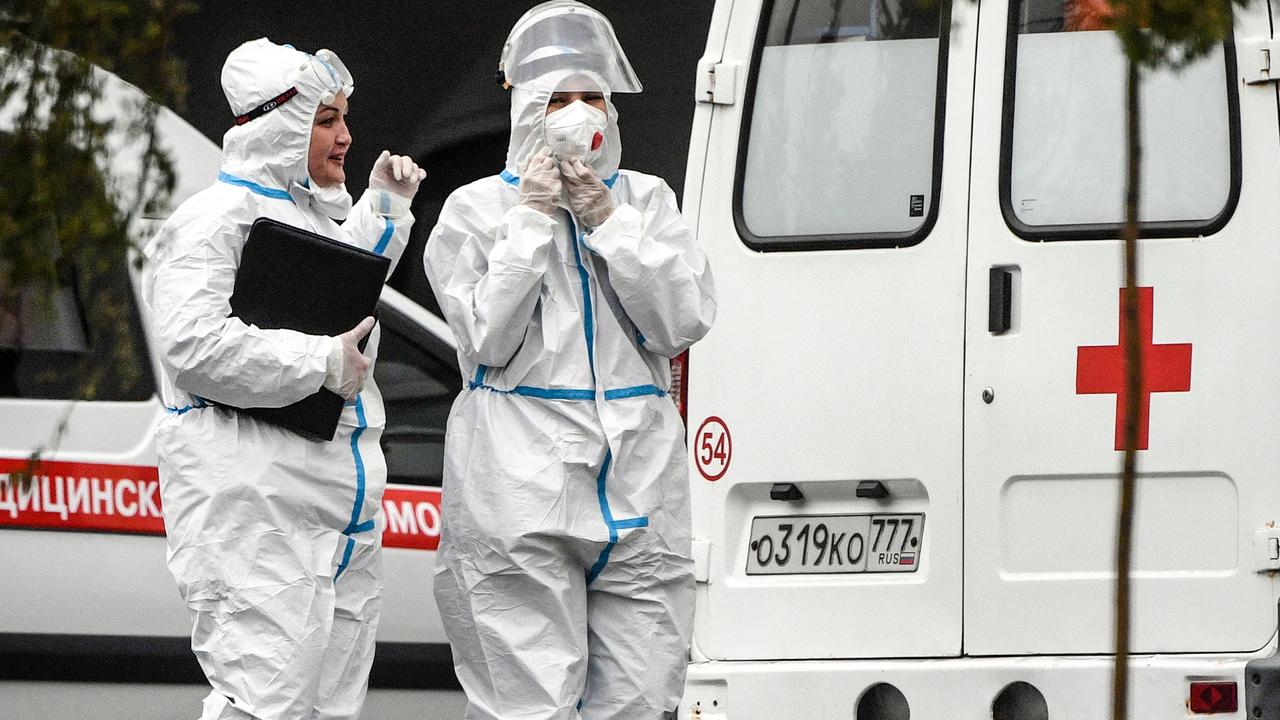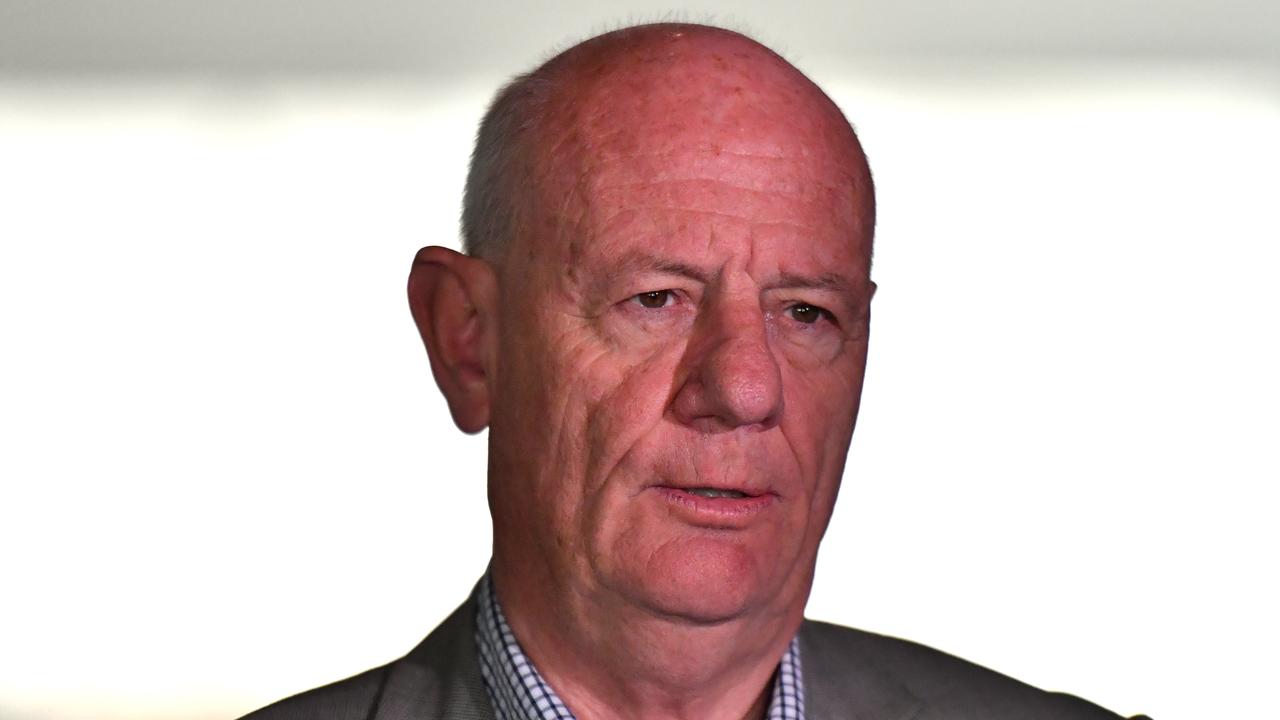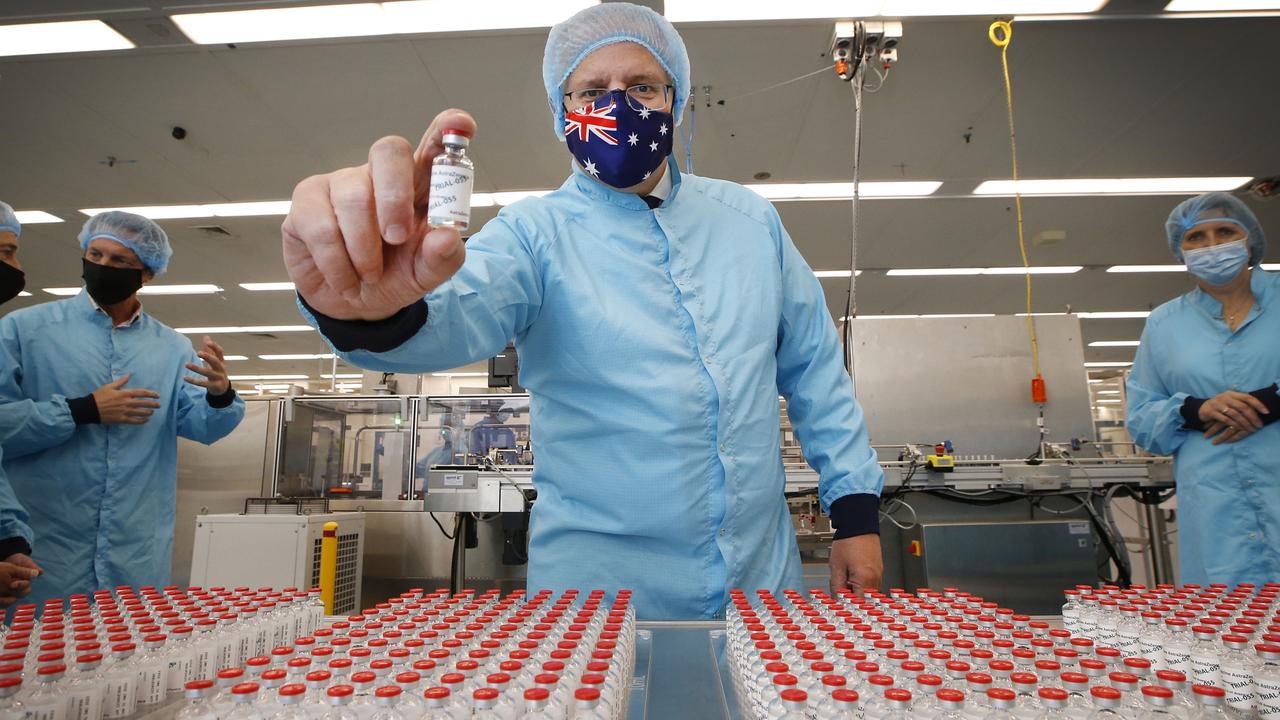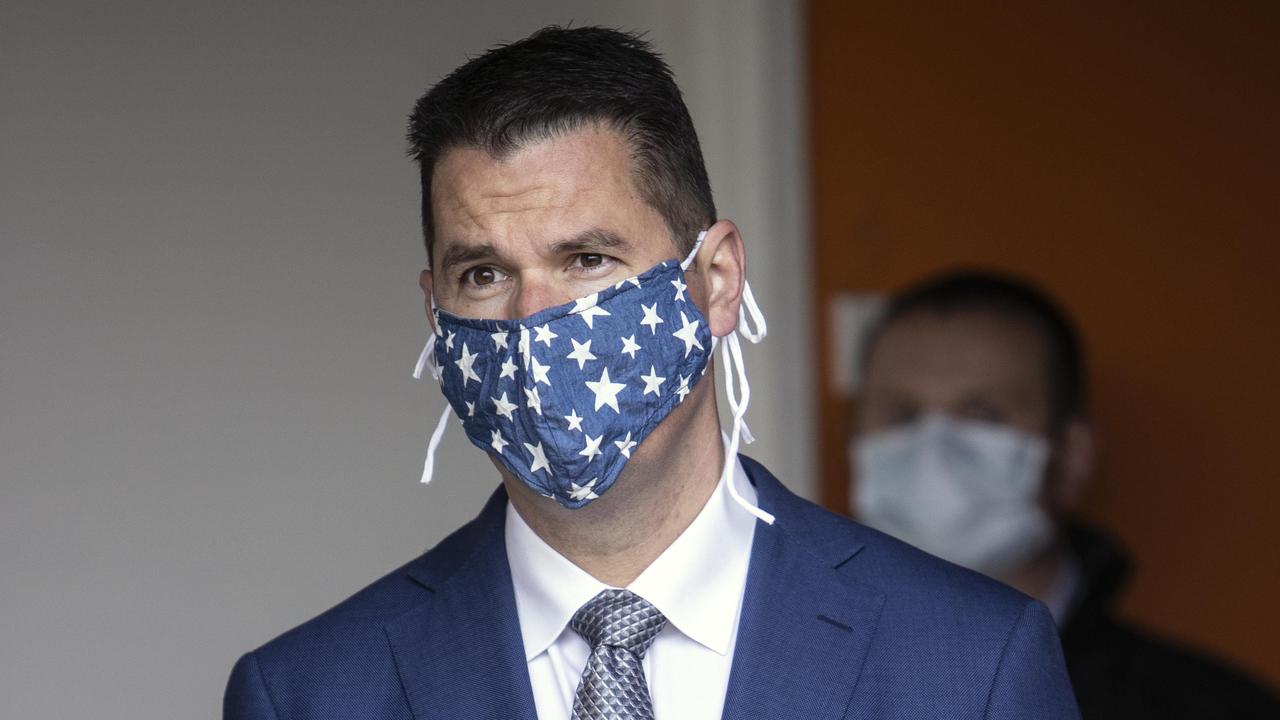Australia urged to act on vaccine inequality as experts warn Covid-19 could mutate within a year
A new report warns Covid-19 could mutate within a year if Australia and other countries don’t act quickly to address a crucial problem.
A Covid-19 mutation resistant to vaccines could emerge within a year if authorities around the world — including Australia — don’t take action, experts have warned.
A report released today by a coalition of aid, health, business and civil society groups makes the case for Australia to commit an extra $250 million to COVID-19 Vaccines Global Access (COVAX) as well as donating an extra 20 million vaccine doses to the organisation.
It has highlighted the dangers if the world does not act quickly to ensure all countries are vaccinated by the end of next year.
“The emergence of the Delta variant shows that Australia cannot close its eyes to the impacts of the pandemic in other parts of the world,” the report states.
“First, because that is morally wrong. But also because, sooner or later, the consequences will be felt here.”
The report notes a survey of 77 epidemiologists from 28 countries found two-thirds believed it would take less than a year before Covid-19 mutated to the point where the majority of vaccines were rendered ineffective if authorities did not act fast enough.
“Speed is of the essence,” the report states. “If we vaccinate the world faster, the likelihood of mutations drops.
“It is within our power to limit the chance of the next mutation from being so deadly and disruptive.”

The Shot of Hope report was co-authored by an Expert Advisory Group of researchers, analysts, and leaders from organisations including the Burnet Institute, UNICEF Australia, Médecins Sans Frontières Australia, Australian Council for International Development, Save the Children Australia, World Vision Australia, Global Citizen and Results Australia
It noted that in more than 19 low income countries, there were such low rates of vaccination, they would not reach the 70 per cent vaccination target until after 2030.
“The longer we allow developing countries to lag in terms of vaccination rates, the more time we give the virus to mutate and spread,” End Covid For All spokesman Reverend Tim Costello said.
“The last thing we want, on Freedom Day in NSW, is the prospect of further deaths and lockdowns because we didn’t do all that we could to vaccinate the world.
“There will also be devastating economic consequences if we fail to act now.”
The report pointed to research from the US National Bureau of Economic Research Study, which showed Australia stood to lose between $7.6 billion and $33.7 billion of gross domestic product (GDP) if only half the population in developing countries was vaccinated in 2021, even if all people in advanced economies got the jab.
“This outcome reflects the substantial interdependences which characterise the global economy and the ongoing pandemic’s impact on international trade and global demand,” the report states.
Other KPMG modelling suggested a smooth international vaccine rollout could have a $17 billion economic benefit and generate nearly 40,000 jobs.
“The rich nations of the world need to understand the global vaccination effort is an investment not a cost,” the report said.
“Indeed, the investment required to vaccinate the world is minuscule compared to the dividend.”

Australia urged to ramp up vaccine production
The report estimates it would cost between $68 billion and $82 billion to vaccinate the world by the end of 2022. It believes Australia’s fair share, based on relative wealth, is 1.7 per cent.
It urges Australia to play a leading role in responding to the pandemic on a global scale.
“The Delta strain, and the havoc it has wreaked across Australia, shows we cannot allow Covid to run rampant and mutate overseas,” Rev Costello said.
The report identifies the first goal should be to make sure at least 30 per cent of those in low and middle income countries were vaccinated by the end of this year.
“This will allow those countries to protect frontline workers and the most vulnerable, however this is just the first step,” the report said.
“While the WHO has set a target of 70 per cent of the world vaccinated by the end of 2022, from experience around the world, it is clear we will need to go further to truly end Covid for all.”
One focus is ramping up Australia’s domestic vaccine production so it can produce an extra 50-100 million vaccines, which can be sold at cost in southeast Asia.
Australia is also being urged to work with the World Health Organisation to establish a technology transfer hub in the region for pharmaceutical companies to share their technology for mRNA vaccines like those produced by Pfizer and Moderna. Unlike the AstraZeneca vaccine, which has agreements with several countries like Australia, the report noted that there were no licensing agreements with manufacturers of mRNA vaccines.
The report said global vaccine manufacturing production had been ramped up from about 5.5 billion doses prior to the pandemic, to an estimated 12 billion.
“While this is an impressive scale up, it is still short of the global requirements and relies on a high level of equity in vaccine purchase and distribution to achieve global vaccination targets,” the report said.

Booster shots in Australia shouldn’t be prioritised
Once countries like Australia had enough vaccine to ensure there were enough jabs for its population to get their first jabs, the report said they should be prioritising the sharing of doses.
While third shots may be needed for the elderly and vulnerable, the report said population wide booster shots in Australia should not be prioritised while much of the world was not on track to be fully vaccinated by the end of 2022.
“We cannot ignore the moral imperative we have to help our poorest neighbours,” Rev Costello said.
“Just two per cent of people in low income countries have received a first dose of a Covid vaccine.
“But with a concerted, realistic global push we can vaccinate nine in ten people across the world by the end of next year.”
It noted that further mutations would increase the demand for vaccine boosters and some high income countries were already hoarding vaccines for this purpose.
“Many high income countries have vaccine contracts in place that far exceed the doses needed to vaccinate their populations,” the report said.
In order to address the inequality in lower income countries, it also believes Australia should be donating more money and vaccine doses to COVAX, which is the worldwide initiative aimed at making sure all countries have access to vaccines.
“COVAX is the only global initiative that is working with governments and manufacturers to ensure doses are available to both higher-income and lower-income countries who may not otherwise be able to procure vaccines on their own,” Rev Costello said.
Australia committed to the region
In response to the report, Minister for International Development and the Pacific Zed Seselja said Australia was absolutely committed to equitable access to Covid vaccines, including for developing countries, with a particular focus on ensuring the Pacific and Southeast Asia region is not left behind.
“Australia has committed more than $750 million to support vaccine access initiatives to date,” Mr Seselja said in a statement.
“Australia has proudly committed to sharing 60 million vaccines with our neighbours in the Indo-Pacific by the end of 2022, and we have shared over 3.57 million vaccines directly with our region to date.
“Our vaccine support for the region is end to end, strengthening local health systems to deliver vaccines safely and to those who need them most, and addressing vaccine hesitancy through technical advice and communications campaigns.
“Australia will continue to provide practical, timely support for our neighbours in the Indo-Pacific region to save lives, advance economic recovery, and build health systems to protect against future pandemics.”

Key recommendations for Australia
• Contribute an extra $250 million to the global COVAX facility;
• Donate an extra 20 million vaccine doses through COVAX;
• Direct $50 million from the Vaccine Access and Health Security Initiative to addressing vaccine hesitancy;
• Contribute $170 million to the Rapid ACT-Accelerator Delta Response Appeal for more testing, oxygen, protective gear, research and technical support in countries of need;
• Rollout of booster shots (beyond priority groups) must be accompanied by extra efforts to ensure frontline workers and vulnerable groups around the world get access to first doses;
• Invest in developing domestic vaccine production so an extra 50-100 million vaccines can be produced and sold at cost in southeast Asia; and
• Work with the World Health Organisation to establish a technology transfer hub in the region for companies to share their technology for mRNA vaccines.
Originally published as Australia urged to act on vaccine inequality as experts warn Covid-19 could mutate within a year





